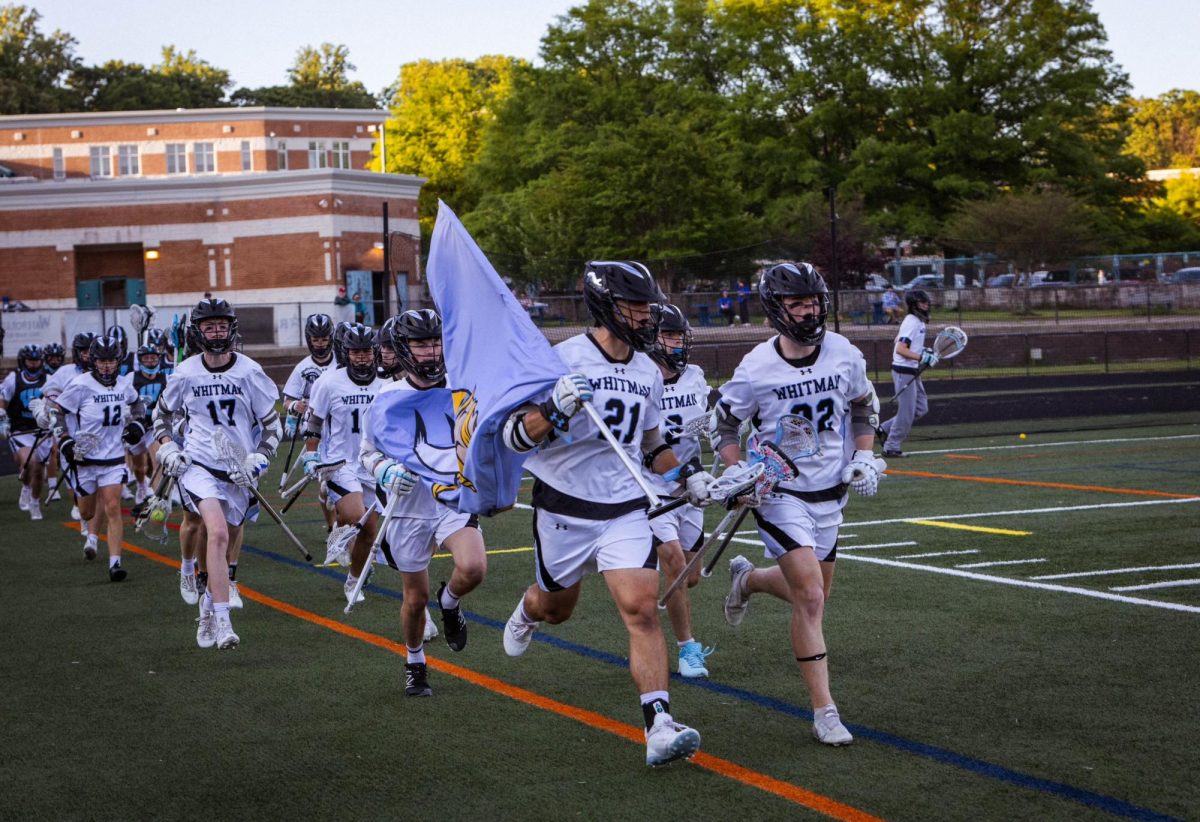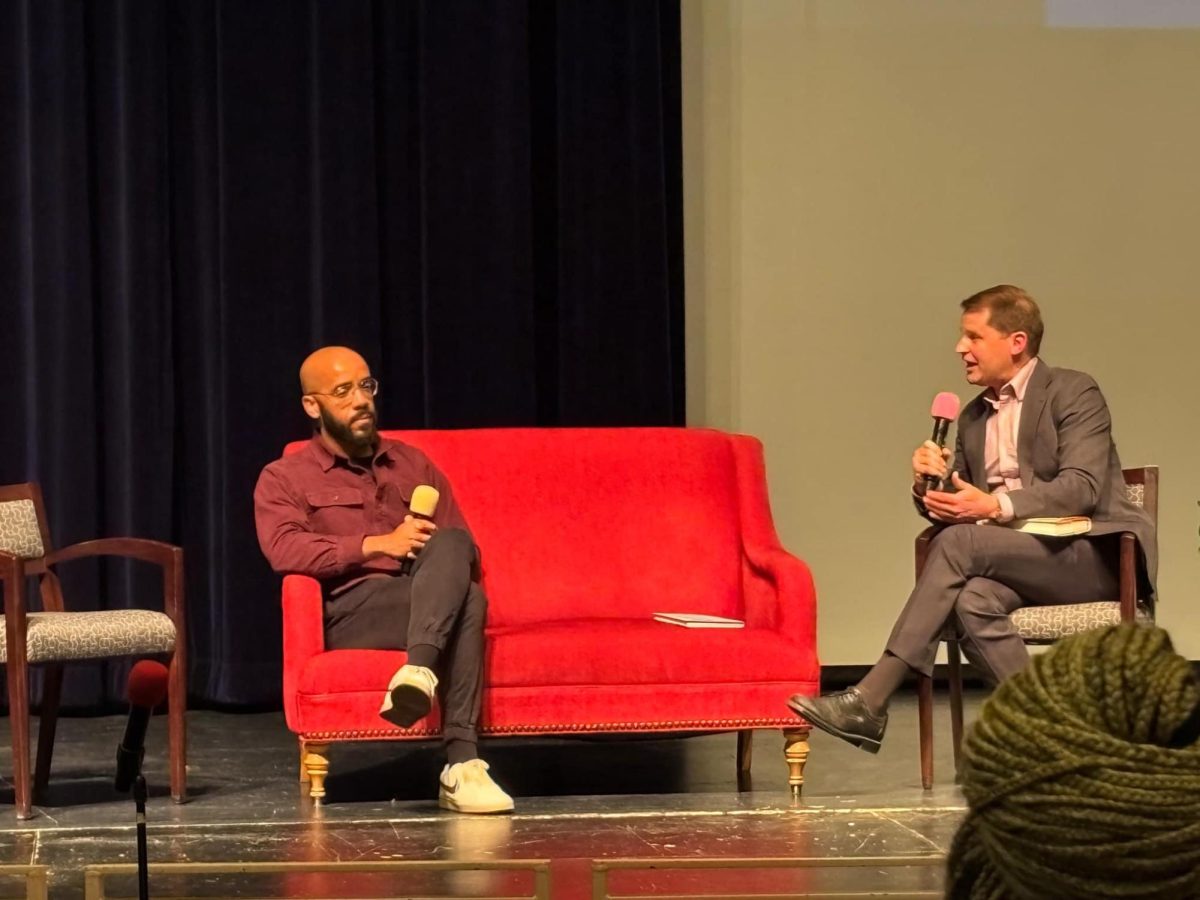I was a top-secret, paid meme expert for Facebook

Courtesy Nathan Goeller-Deitsch
One of the many memes my group members made surrounding group owner, Severin.
May 23, 2020
Working for Facebook would be a career highlight for most. For me, it was a side hustle.
Every week for three months, Facebook paid me to tell a data researcher whether or not the memes he shared were funny. It was the best and most bizarre job I’ll ever have.
Most teens see Facebook as an app exclusively for their parents and grandparents. The past several years have been rocky for Facebook and Mark Zuckerberg, the company’s CEO; the app has become a base for spreading misinformation, having possibly influenced the 2016 election outcomes and upsetting privacy breaches. The app has seen a sharp decline in users, losing over 15 million users in the past two years. Knowing this, the company is working to attract teen users by creating new, engaging platforms. These efforts included creating a meme-sharing page that mimicked popular humor-based apps but was run through the Facebook app itself. Designers unimaginatively named the project “Facebook LOL.”
I first became involved with Facebook LOL through dubious means. In early September 2018, I responded to the sketchiest ad of all time on Facebook. It said something along these lines:
Are you a teen? Do you like memes? Do you want money?
My parents always warned me to never click on suspicious advertisements or give my email away to strangers, but as a teen who likes memes and wants money, I simply couldn’t resist.
Later that month, I received an email from a Facebook data researcher asking me to participate in the project. I would be added to a Facebook group with around 100 other teenagers around the country who had been looped into this research scheme through the same sketchy ad I had responded to. Though I was reluctant to disclose my personal Facebook information and interact with other teenagers, I agreed once I was promised a $75 weekly stipend.
The Facebook Group — titled “What’s Funny?” — was like an alternate reality. Filled with money-hungry, meme-obsessed teens like myself, the group members didn’t interact much at first, but soon they would become some of my closest friends.
We were all super eager to be let in on a classified Facebook secret. We felt special.
Confidentiality was paramount in the research; I had to sign a five-page non-disclosure agreement — one that has since been rendered null and void — and get a parent signature.
Once the research commenced, a user experience researcher named Severin introduced himself to the group. Facebook hired him to collect data on responses to the Facebook LOL prototype. Severin would post a series of memes to the group every day, and our job as “scouts” for the project was to rate the comedic value of each daily batch.
The only problem: The memes sucked.
I don’t know what Severin was thinking. His sad excuses for memes were stale and uncreative. The group of teens was merciless in our criticism of the platform. From our perspective, it was obvious there was no clear plan for the format of LOL. It seemed like a desperate attempt from Facebook to attract teen users by clumping ancient memes together and calling it “humor.” There was no original content whatsoever; instead, the platform just stole memes from Twitter, Instagram and even iFunny — an older app solely made for meme-sharing.
After two weeks, the memes weren’t getting any funnier and the feedback wasn’t making an impact, so I took matters into my own hands. Wanting to post the first funny thing since the project started, I made a quick post poking fun at the one connection we all had: Severin.
The poor data researcher was the perfect target. He had a weird-sounding name and a tragic taste in memes. After some of my own research, I found out that Severin’s Facebook account was created the same day as the group itself. Suspicious. I posted a harmless message in the group about how I believed Severin was a fake man, expecting to get a few chuckles and maybe even some attention from the man himself. (I later found out Severin is in fact very real).
I sparked a movement. Suddenly, everyone took upon themselves to create their own memes, all making fun of Severin. I felt a little bad for him; he was just some grown man doing research and continually being cyberbullied by teens. At first he never responded, but after we incessantly harassed him with memes, he began to comment with GIFs of his stunned reactions. Out of the blue, Severin started using our memes as his own Facebook profile picture and banner. I think he secretly liked the attention.
Soon the group became overrun by our own original memes. Not only did we make fun of Severin, but we also made fun of Facebook itself and the ridiculousness of the LOL platform. We were having the time of our lives — and all on Mark Zuckerberg’s dime!
The study was only supposed to last one month. However, this platform of Facebook-curated memes was so underdeveloped that the research team kept extending our project week by week, in an attempt to pull more data and improve the features of LOL. Having started in late October, it ended up lasting until late January.
Over those three months, our group became close. Sometimes I’d catch myself staying up late just to share a laugh with these teens from all over the country. I added a few of them on Snapchat and followed many on Instagram.
One of the best parts of the group was that we were all so quick to support one another. Nobody truly knew anyone and yet we were willing to open up to each other and have deep conversations. We helped each other come up with extravagant holiday gifts that we could buy with our new income. Someone even lent someone else a bit of their stipend when they needed the extra cash for a loved one’s birthday. Even though we had never met in person, the connections were real. A lot of people automatically assume making friends online is bad and dangerous, but for us, it was incredibly easy to form a real and understanding community.
Then the unthinkable happened: Someone broke their NDA and leaked the details of Facebook LOL to the press. All within the same week, TechCrunch, Mashable and The DailyBeast wrote articles absolutely destroying Facebook for their crude development of LOL. Honestly, it hurt a little. It was one thing when I made fun of the platform — I was paid to do so — but to see professional journalists ridicule what I had spent three months obsessing over? Heart-wrenching.
What was more heart-wrenching was my loss of income. Severin or one of the other researchers deleted the Facebook group. There’s no public proof it ever existed.
After harsh criticism from tech news outlets, Facebook decided to cease the development of LOL. The platform was never going to work in the first place; it was ill-conceived and tragically unfunny. My group received our last payment, and we never heard from the cursed page again.
But I wasn’t ready to say goodbye to this new community quite yet. Earlier in the project, I was voted the funniest member of the group in a poll one of my friends made. It was an honor. I wanted to keep that title, so I made a new Facebook group. With the new group, we were able to keep in touch and continue sharing only the best memes. About half the members of the original group joined, and we all posted and talked every day for the first few months.
When I decided to reflect on the whole extravaganza for The Black & White, I revisited the unique Facebook group I had made. It had been inactive since the summer. Realizing how much I missed sharing a laugh, I dropped a quick hello. Though it had been over a year since the original Facebook project closed, my favorite members were eager as ever to update me on their lives.
A lot of people got into their dream colleges. A few people got real jobs — more reliable ones than reviewing memes for Facebook. One guy even got married. For old time’s sake, we posted a few of our favorite memes. We were all overjoyed just to talk to each other again. Though I will likely never meet these people in person, we’re all connected through the wacky moment in our lives that we shared. Through it all, I realized that even from the most unlikely places a community can arise.
Memes are our most compressed ideas, quick ways to share our thoughts on the situations and ironies of life. We create memes for strangers to laugh at and understand, but in this project it was the strangers themselves I found myself understanding the most. Maybe the true memes are the friends we make along the way.











Angelo Messina Jr • May 24, 2020 at 3:20 pm
Very Informative and Well Written, 10/10!
I was invited to the Facebook LOL Research Project through the dscout app, unlike seeing an ad on Facebook.
This project had some potential but was going downhill after the NDA was broken by someone who we don’t know as of today.
I still remember the day when Severin made a post with everyone’s memes and asked for people to vote on which one is the best out of all of them.
Participating in the Facebook LOL Research Project was something I’ve never would have thought I would stumble upon. Not gonna lie, I liked the memes but the main focus was the money I was getting for such an easy task. $75 per week was the reward for submitting data on memes over on the “What’s Funny?” Facebook Group.
I still think Mark Zuckerberg is a Robot Lizard. I’ve always wondered how Severin is doing since the past year… hopefully he’s doing well through this pandemic we have to unfortunately suffer through.
The Facebook LOL Research Project probably would have continued for at least a couple weeks if the NDA wasn’t leaked.
Anyways, thanks for making such an excellent post!